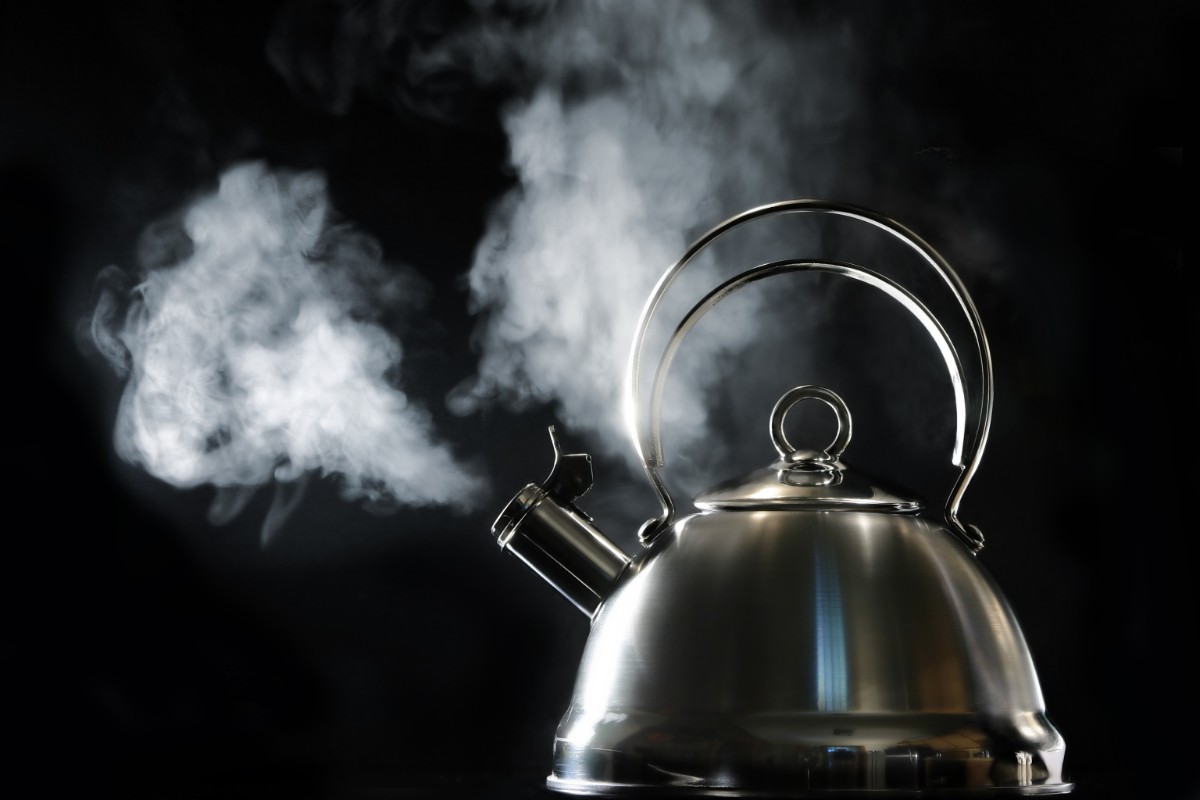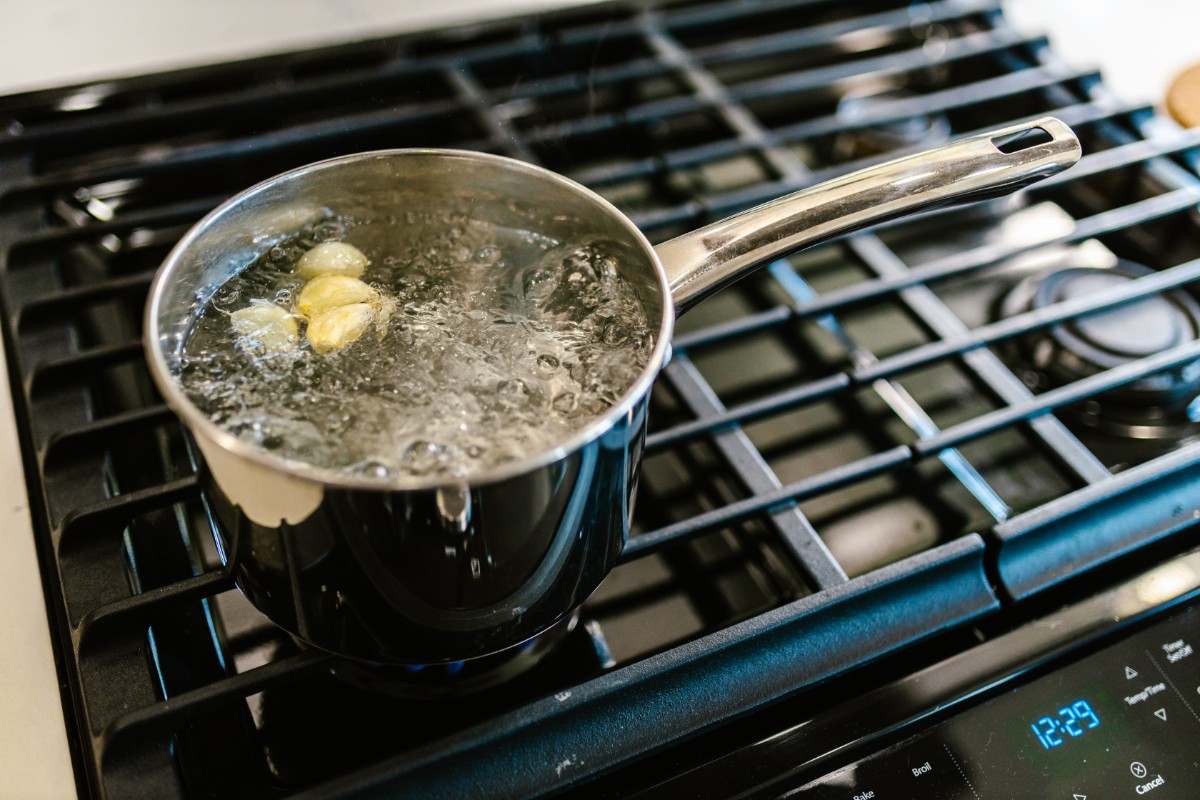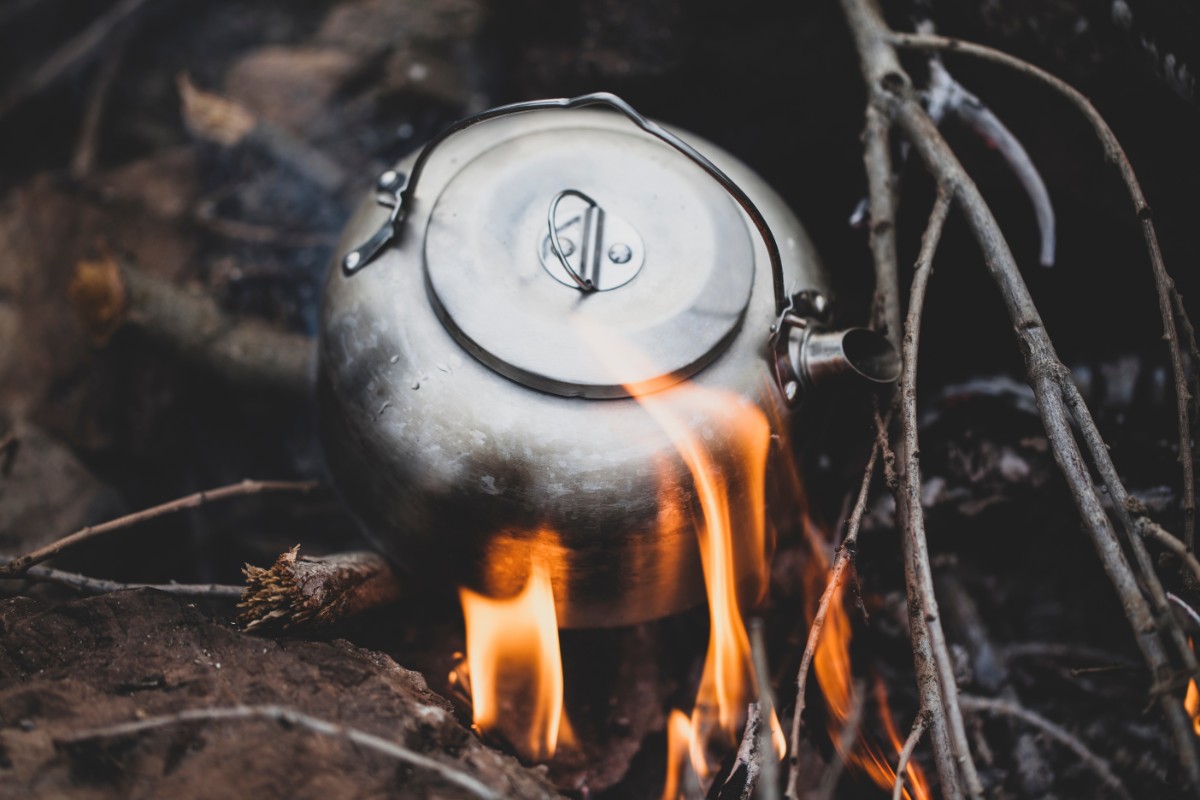If you’re new to cooking, you might be wondering if a lid helps boil water faster. This is a common question as many people are unsure whether or not a lid really helps when cooking.
There are all sorts of useful cooking tips that can help you become a much better home cook and finish cooking faster. While some of these aren’t necessarily true, you might not know which tips to take seriously.
Read on to find out if using a lid helps water boil faster, or if salt is a great way to boil water faster.
A lid helps the water boil faster
If you want to get your water to a boil faster, you might be wondering if you should use a lid. The answer to this question is that you should definitely use a lid as it will make the water boil much faster than usual.

Placing a lid on a pot of boiling water will seal in the heat and steam, creating a much hotter environment. This allows the water to start boiling much faster as the heat from the oven is only intensified.
For this reason, most people recommend covering the pot when trying to bring water to a boil so you’re cooking something like pasta. This will add a few minutes to the cooking time as it allows it to rise and heat up much more quickly.
This can also be used to have more control over the heat going into the pot of liquid you are cooking. You can use this method, for example, to help a soup cook much faster before removing the lead to start it simmering.
Overall, using a lid when cooking is a great way to have more control over the heat going into the pot. Especially if you’re trying to cut down on your cooking time.
Does adding salt help boil water faster?
Some people may have heard the tip of adding salt to boiling water to make it cook faster. Unfortunately, this tip doesn’t necessarily apply, since salt doesn’t help the water boil faster.
This tip came about because many people use salt to flavor water they are boiling. This may not seem practical, but it is useful depending on why you are boiling the water.
Salt is traditionally used in boiling water when you are cooking pasta as it helps flavor the pasta. The pasta absorbs water as it cooks and absorbs some of the salt that is dissolved in the water, resulting in a more flavorful pasta.
For this reason, you may have heard the tip of adding salt to boiling water. This is not an ingredient used to bring the water to a boil faster as it can merely flavor the water itself.
So this tip is really only useful when you are cooking something to cook like pasta, vegetables or other food.
How do I keep my pans from overcooking?
When you start cooking from home, you may have had problems with pans and pots boiling over. This is a common problem people have, especially if they are fairly new to cooking and don’t know what to expect.

This can be quite a frustrating problem as it can end up ruining the dishes or leaving a huge mess. Mainly dependent on what is overcooking, as certain things overcook much more easily.
Any type of milk or starch is particularly prone to boiling over and making a huge mess on your stovetop. Therefore, care should be taken when cooking pasta, cream sauces or soups, as these can easily boil over.
The good news is that there are some very helpful tips to keep your pans from overcooking. So that you can get rid of this problem and enjoy your cooking experience without any minor disaster happening during the process.
add oil
One of the best ways to keep your pans from overcooking is to add a very small amount of oil or butter to the pan. This will help negate the effects of the starch, which will end up causing the pan to overcook.
However, this should only be used for certain dishes as the oil or butter can interfere with cooking. For example, when you cook noodles, the noodles can become oily, resulting in the noodle sauce not being able to stick to it.
So this is a tip to use sparingly depending on what you are cooking.
change pans
One of the easiest ways to prevent your pan from overcooking is to choose a larger pan than necessary. Most people have several pans and pots of different sizes available for different dishes.

You may tend to pick the pan that’s just the right size for what you’re cooking, but that can actually cause problems later on. The best way to prevent your pan from overcooking is to simply choose a large pan that can handle the extra foam build-up.
The pan cannot boil over because the liquid does not reach the edge of the pan. Most people could easily avoid overcooking by choosing the right size pan that can accommodate the dish as it climbs up the sides of the pan.
stay close
If you’re cooking something that could potentially boil over, you should stay near the pan to watch. Many types of food have a tendency to overcook, and one of the best ways to prevent this is to just stay around.
There’s a much greater risk of your pan overcooking if you leave it on the stove and walk away. Since you’re not around to notice when it starts boiling over and sloshing onto the stovetop.
Stirring is also a great way to prevent overcooking, so you can do this when you’re near the stove. When cooking certain foods, it’s better to stay in the kitchen so you can keep an eye on them so they don’t overcook.
No lid
If you really want to prevent something from overcooking, you can do so by not using a lid. The lid helps liquids boil faster, increasing the temperature and creating more foam, allowing liquid to rise up the sides of the pan.
This often results in overcooking, which can make a big mess. However, this can be avoided by using the lid to bring the liquid to a boil and then removing it to prevent boiling over.
Final Thoughts
If you’re trying to boil water, you can accomplish this much faster by putting a lid on the pot of water. This traps the steam and allows the internal temperature to rise much faster, causing the water to boil.
This is a great way to cut cooking time in half, allowing you to prepare the rest of your meal faster once the water is boiling.
